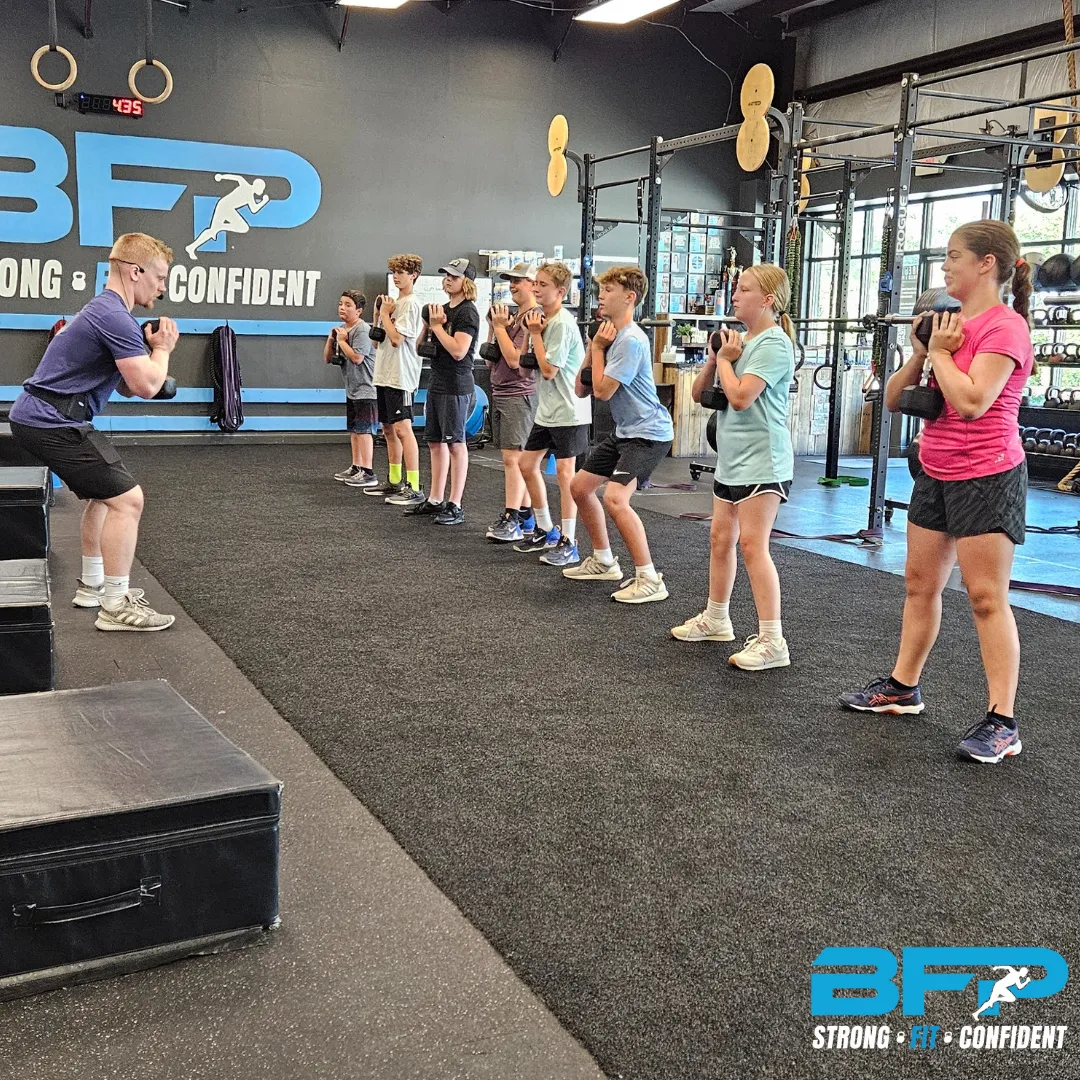WEIGHT LOSS & FITNESS BLOG

The Importance of Year-Round Training for Youth Fitness: Why Kids Need Consistent Exercise – Even During Sports Seasons
The Importance of Year-Round Training for Youth Fitness: Why Kids Need Consistent Exercise – Even During Sports Seasons
As youth sports become increasingly competitive, many parents, coaches, and young athletes themselves question whether they should continue fitness training year-round. There’s a common misconception that during a sports season, focusing only on the sport itself is enough to keep kids fit, healthy, and strong. However, consistent, well-rounded fitness training—even during the sports season—provides invaluable physical and mental benefits. By training year-round, young athletes build resilience, avoid injury, and experience notable improvements in confidence and wellbeing.
1. Maintaining Strength and Preventing Injury
When young athletes focus solely on their sport during the season, they often overlook the need for foundational strength training and mobility. While sports-specific movements are essential, they rarely address total body strength, flexibility, and balance—all of which help prevent injury. Research supports that youth who engage in regular strength training experience fewer injuries than their non-training peers, particularly in sports with high impact or repetitive motion, such as soccer, basketball, and tennis (Faigenbaum et al., 2009).
Incorporating strength and conditioning routines year-round builds resilience in muscles, joints, and ligaments. These routines enhance stability and improve biomechanics, making young athletes less susceptible to common sports injuries like sprains, strains, and stress fractures. Maintaining fitness year-round prevents the “start-stop” effect, where athletes lose strength and conditioning in the off-season, only to have to rebuild it when their sport resumes.
2. Improving Performance and Skill Development
Consistent training aids in skill development and enhances athletic performance. When young athletes work on general physical fitness—strength, speed, endurance, and flexibility—they gain an edge in their specific sports. For instance, studies indicate that sprint training and plyometric exercises improve speed and agility, both crucial skills for most sports (Myer et al., 2011).
By maintaining a baseline of strength, coordination, and agility, young athletes can focus on fine-tuning their sports-specific skills during practices rather than catching up on conditioning. This advantage allows them to compete with greater efficiency and confidence, leading to better performance during games and tournaments.
3. Enhancing Overall Wellbeing and Mental Health
Fitness training provides tremendous mental health benefits, especially for young athletes under the stress of competitive sports. Regular exercise has been shown to improve mood and reduce anxiety by releasing endorphins and other brain chemicals that promote feelings of happiness (Biddle & Asare, 2011). This benefit becomes particularly important during high-pressure sports seasons when stress levels may rise due to competition, school obligations, and social commitments.
Additionally, engaging in consistent, non-sport-specific exercise helps youth take a mental break from their sport, alleviating burnout and keeping their interest and enjoyment alive. A balanced approach to fitness can help young athletes feel more fulfilled and motivated to train, even outside the parameters of their chosen sport.
4. Boosting Confidence and Self-Efficacy
Physical fitness training promotes confidence and self-efficacy—the belief in one’s ability to accomplish tasks. As young athletes improve their strength, agility, and endurance, they often feel more capable and prepared to take on new challenges, both in sports and in life. Training provides a space for them to set and achieve measurable goals, reinforcing a growth mindset and resilience.
Children who feel strong, coordinated, and physically capable are more likely to perceive themselves positively and tackle challenges with a healthy mindset. Confidence built in the gym or training environment translates onto the field and court, where athletes feel empowered to perform under pressure.
5. Establishing Lifelong Healthy Habits
Year-round training helps youth develop the habits needed for lifelong physical health. By introducing regular exercise routines early, kids learn to prioritize their health, balance multiple aspects of fitness, and develop a routine that they can carry into adulthood. According to the CDC, habits formed in youth are likely to continue into adulthood, reducing the risk of chronic diseases like obesity, heart disease, and diabetes (CDC, 2020).
In addition to sports performance, a consistent fitness routine supports bone health, muscle strength, cardiovascular health, and flexibility. All of these contribute to a well-rounded, healthy individual, equipped with both the physical and mental tools to succeed beyond the sports field.
Conclusion
While sports seasons bring excitement and purpose to young athletes, they shouldn’t signal an end to fitness training. A well-rounded, consistent fitness regimen benefits young athletes in numerous ways—from preventing injuries and boosting performance to enhancing wellbeing and instilling confidence. Training year-round provides a balanced, resilient foundation that benefits athletes on and off the field, empowering them to pursue their passions with vigor and confidence.
By understanding and embracing the importance of consistent training, young athletes—and their families—can make informed decisions that foster both short- and long-term success, health, and happiness.
References
Biddle, S. J., & Asare, M. (2011). Physical activity and mental health in children and adolescents: A review of reviews. British Journal of Sports Medicine, 45(11), 886-895. https://doi.org/10.1136/bjsports-2011-090185
CDC. (2020). Physical activity facts. Centers for Disease Control and Prevention. Retrieved from https://www.cdc.gov/healthyschools/physicalactivity/facts.htm
Faigenbaum, A. D., et al. (2009). Youth resistance training: Updated position statement paper from the national strength and conditioning association. The Journal of Strength & Conditioning Research, 23, S60-S79. https://doi.org/10.1519/JSC.0b013e31819df407
Myer, G. D., et al. (2011). Plyometric training improves power and agility in young athletes. Journal of Sports Science & Medicine, 10(4), 586-593.


Are you Ready to become
sTRONG - FIT - cONFIDENT?
Click the Button To Start Your Journey Today!!
© 2024 Breakaway Fitness & Performance
|
|
© 2024 Breakaway Fitness & Performance


